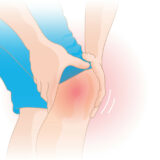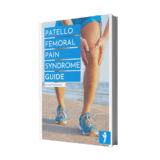Rotator cuff surgery or not?

It’s been a highly discussed topic in the last few years. Should I, or shouldn’t I get shoulder surgery for my cuff tear? Getting shoulder surgery depends on a couple of factors. In this blog, we will discuss the research about having shoulder surgery and the only reason why you should get shoulder surgery.
The most common tendon injury
Rotator cuff tears are the most common tendon injuries in the adult population. While the number of people having a cuff tear increases with the increase in age, approximately 30% of the people of the age of 60 years and over have a shoulder cuff tear. But should you get surgery for this type of injury, or should you start with physical therapy?
What is the effect of your shoulder surgery?
Well, a lot of research has been done about the possible effects of having shoulder surgery. And the results are a bit remarkable. A big review of articles shows that surgery is ineffective for many types of rotator cuff tears. Research also shows that full-thickness rotator cuff tears (so a full tear) do just as well with physical therapy as with surgery. But if we take a look at the differences between the possible downside effects and costs of shoulder surgery versus physical therapy. Physical therapy would cost less and had fewer downside effects. Knowing about this information, we would say you shouldn’t get shoulder surgery. And that’s true in most cases.
Non-healed rotator cuff tears after surgery also improve
And that’s because you should always start with a conservative approach. If that doesn’t work, you could always try surgery. And we hear you saying, ‘but the tear doesn’t heal with a conservative approach, right?’. That’s mostly true, there are some researches that found that the tear can heal on its own, but in most cases, the tear doesn’t heal without surgery. And that’s not wrong. Because when we take a look at studies that looked at the healing rates of the shoulder cuff after shoulder surgery. They found out that in some cases, the tear doesn’t even heal after the surgery. But that doesn’t matter, because the people with a non-healed cuff tear even improve after shoulder cuff surgery. So if you can improve without having a successful cuff repair following shoulder surgery, why should you even have that shoulder surgery in the first place?
Maybe the rotator cuff tear isn’t your problem
So unsuccessful shoulder surgery, so no cuff healing, doesn’t mean you still need to have shoulder complaints. So maybe there isn’t even a link between a cuff tear and having shoulder complaints. Well, first of all, studies have found that a healed cuff tear as a result of shoulder surgery doesn’t directly mean you feel better. Some people who showed a healed cuff on ultrasound or MRI after shoulder surgery still had complaints in their shoulder. So a healed cuff doesn’t mean you are free of discomfort. If we take it the other way around, research even showed that having a cuff tear doesn’t directly mean you need to have complaints in your shoulder. In other words, a lot of people have a rotator cuff tear of some degree without experiencing discomfort in their shoulder. If we look at these facts, there isn’t a link between having a cuff tear in your shoulder and physical complaints.
The ONLY reason when you should get rotator cuff surgery
But despite these facts, people still get surgery for their cuff tear. And that’s okay because like we mentioned in the introduction, there are some cases in which we would recommend shoulder surgery. But when do we recommend surgery? We recommend surgery for your rotator cuff tear when you’ve tried a good conservative approach. And if your conservative approach didn’t work and you still keep shoulder complaints, then you have a good reason to get surgery. And a good conservative approach consists of gradually building up your strength, mobility and getting the right advice regarding your complaint.
To sum things up, your cuff tear doesn’t mean you need to have shoulder complaints, people who have a healed cuff tear after surgery can still have complaints, and people who have an unsuccessful shoulder surgery can be complaint-free. And the only reason to have shoulder cuff surgery is if you have tried a good conservative approach. If you need some help with your rehab approach, consider getting our full shoulder rehab guide or book your intake appointment




